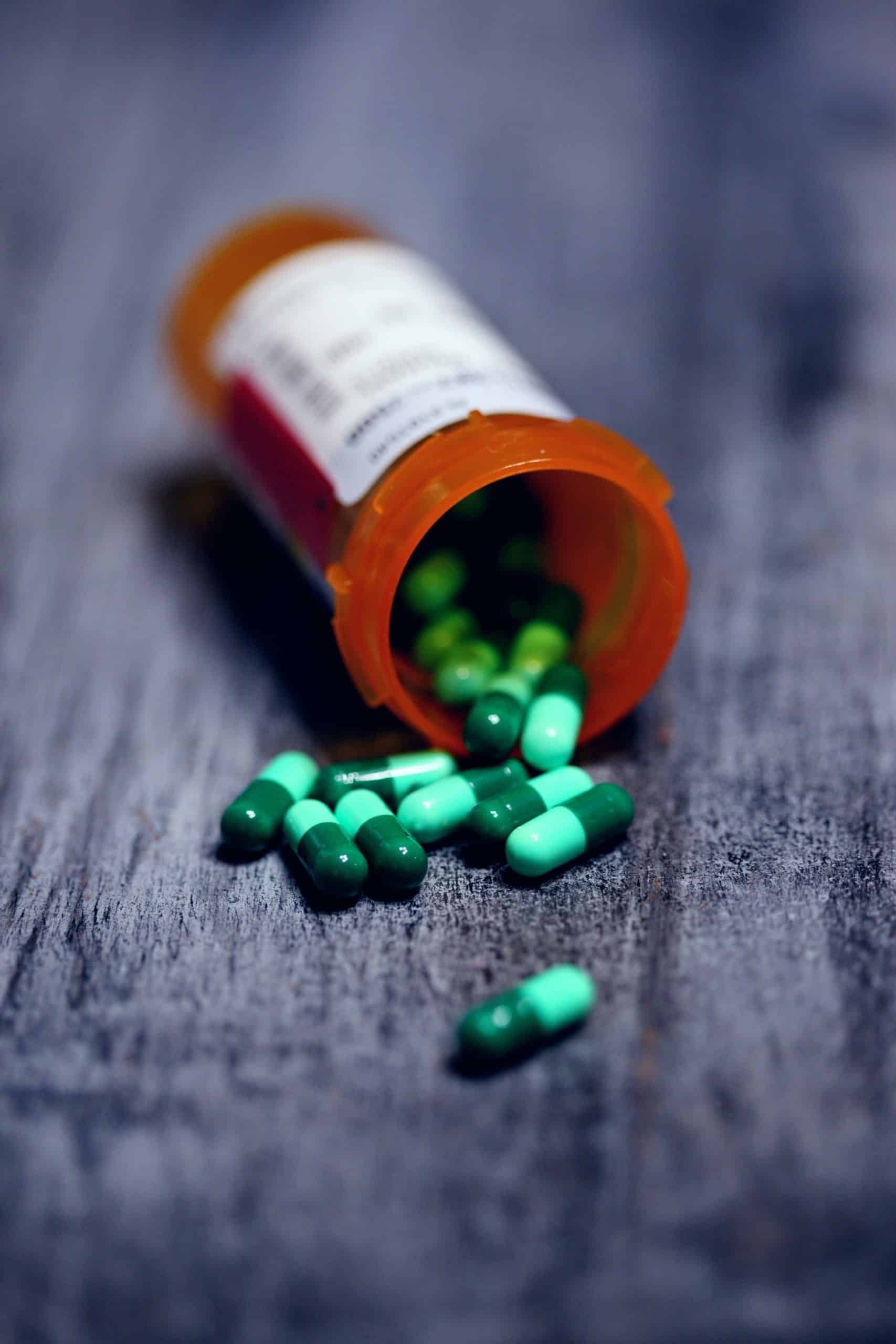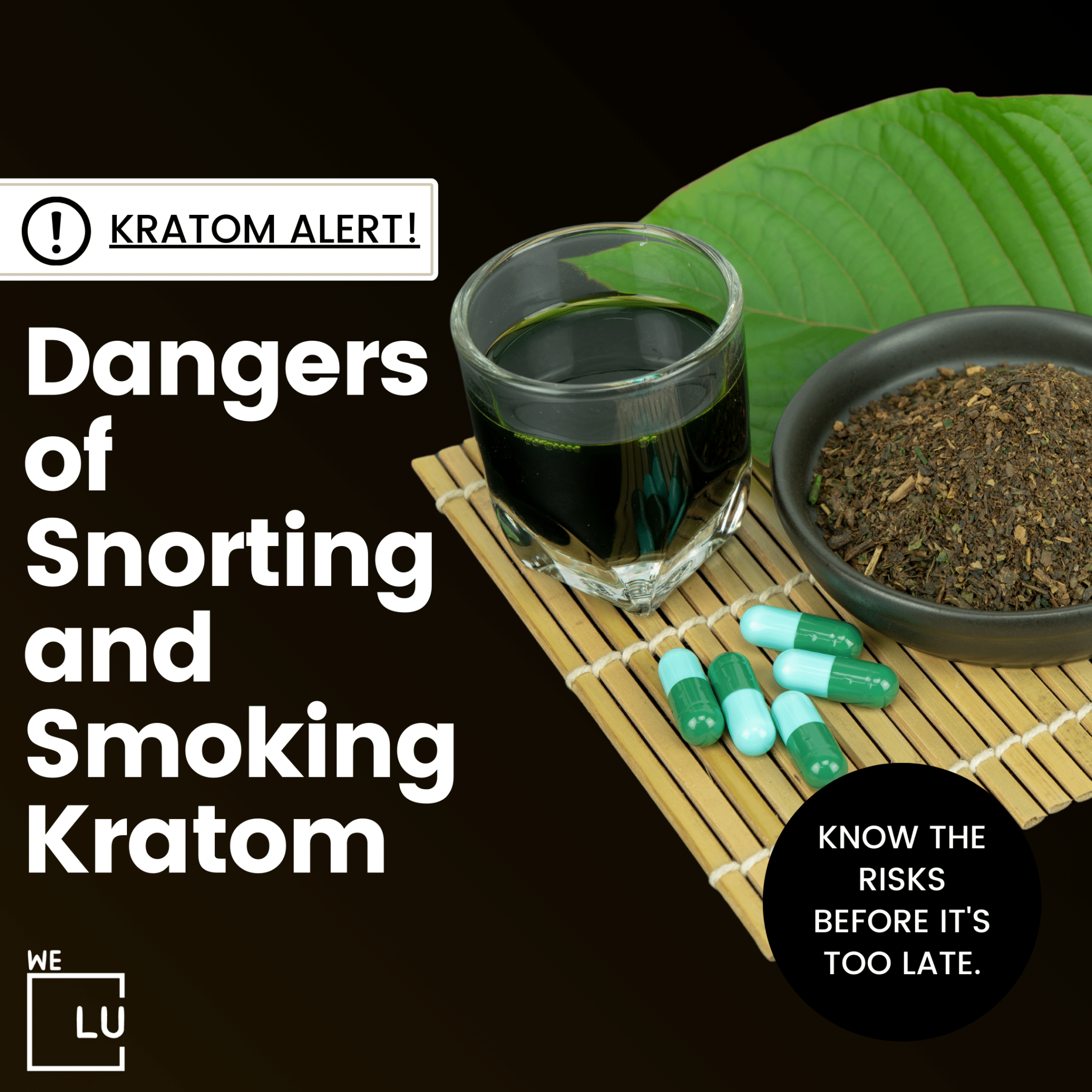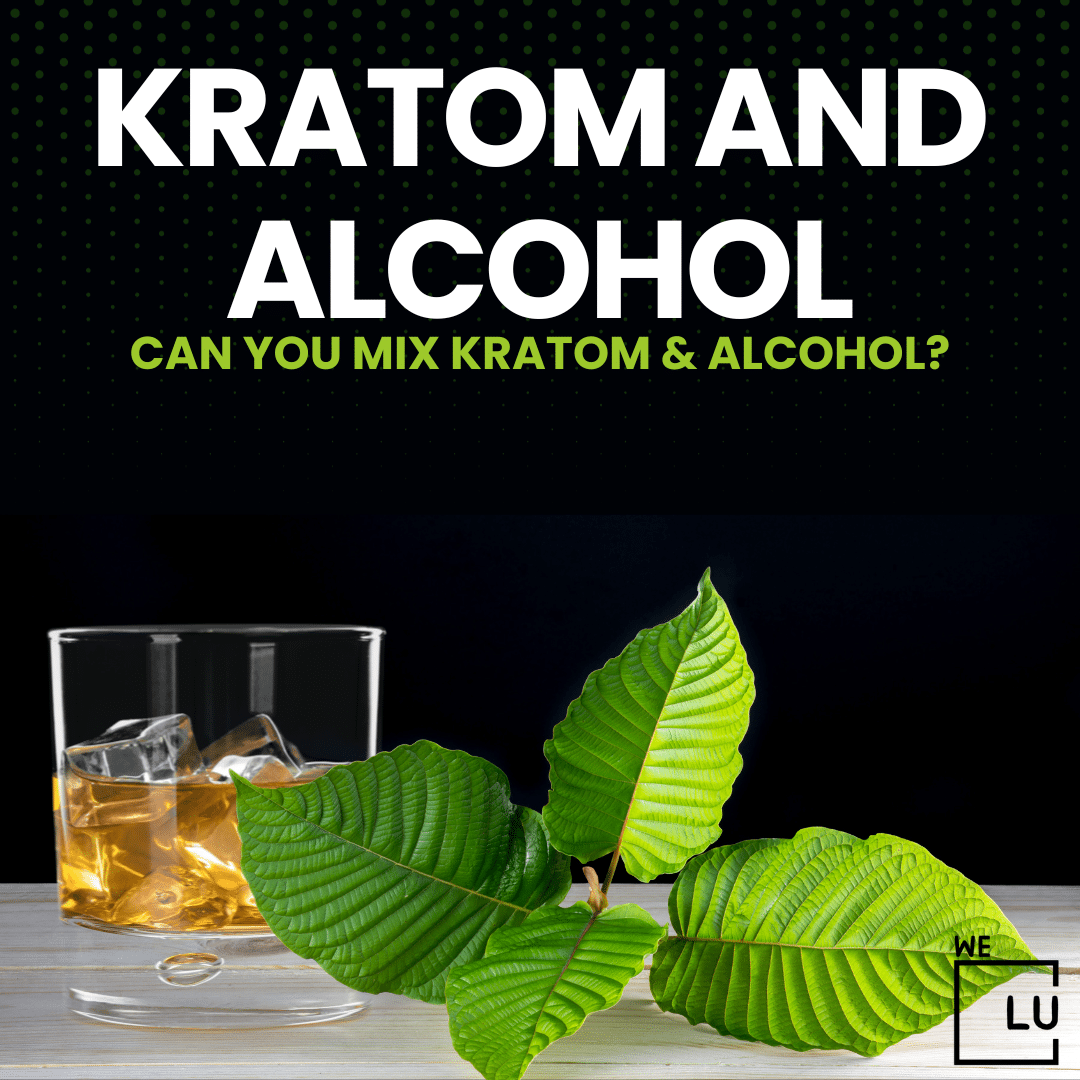THC, or tetrahydrocannabinol, is the primary psychoactive compound found in cannabis and is responsible for the plant’s mind-altering effects. It interacts with cannabinoid receptors in the brain, affecting coordination, mood, memory, and perception. THC is what gives marijuana its recreational and medicinal properties.
The duration for which THC is detectable in your system depends on several factors, including the frequency of use, dosage, metabolism, and the type of drug test. Read on to find out how long does THC stay in urine and other drug test detection times.
How Long Does THC Stay In Your System?
The duration that THC (tetrahydrocannabinol) remains detectable in your system depends on various factors, including frequency of use, dosage, metabolism, and the type of drug test conducted.
Individual variations, including factors like body weight, metabolism, and the potency of the cannabis product, can influence how quickly THC is processed and eliminated from the body. The use of CBD products or other cannabinoids can also affect drug test results.
Suppose you are facing a drug test or have concerns about THC detection. In that case, consulting with a healthcare professional or the entity conducting the test for more personalized information is advisable. Regular exercise, staying hydrated, and a healthy diet may contribute to the natural elimination of THC from the body, but these factors may not guarantee a specific timeframe for clearance.
How Long Does THC Stay In Urine?
The presence of THC (tetrahydrocannabinol), the psychoactive compound in marijuana, can be detected in urine for varying durations depending on individual factors. THC metabolites are typically detectable for infrequent users for a few days to a week after use. For regular or heavy users, THC can be detected in urine for an extended period, ranging from several weeks to over a month. The variability is influenced by factors such as the frequency and amount of marijuana consumed, individual metabolism, and overall health
How Long Does THC Stay In Blood?
When marijuana is smoked, THC rapidly enters the bloodstream through the lungs, resulting in a quick onset of effects. Blood tests are often used to detect recent cannabis use, especially in scenarios like driving under the influence (DUI) investigations.
For infrequent users, THC might be detectable in blood for around 6 hours to a day after use. For regular or heavy users, detection can extend to a few days.
The presence of THC in the blood does not necessarily correlate with impairment. While THC levels in the blood decrease relatively quickly, the psychoactive effects of marijuana may persist for a longer duration.
How Long Does THC Stay In Saliva?
The detection window for THC (tetrahydrocannabinol) in saliva is relatively short compared to other testing methods. THC is typically detectable in saliva for 24 to 72 hours after use. The exact duration can vary based on individual factors such as the frequency of marijuana use, the method of consumption, and individual metabolism.
Saliva tests are often used for roadside drug testing or in situations where recent cannabis use needs to be identified. The quick onset of detection in saliva makes it a useful method for detecting recent marijuana use.
For infrequent users, THC may be detectable in saliva for a shorter duration, while for regular or heavy users, detection may extend closer to the upper end of the range.
How Long Does THC Stay In Hair?
THC (tetrahydrocannabinol), the psychoactive compound in marijuana, can be detected in hair for an extended period compared to other testing methods. Hair follicle tests are designed to identify long-term or chronic drug use rather than recent use.
In general, THC metabolites can be detected in hair for up to 90 days or even longer after cannabis consumption. However, individual variations can impact the detection window. Factors such as the rate of hair growth, hair color, and the presence of specific hair treatments can influence the accuracy of hair follicle tests.
The detection process involves analyzing segments of hair close to the scalp. Each centimeter of hair may represent approximately one month of drug use history. Regular or heavy cannabis users may have a longer detection window in hair compared to infrequent users.
While hair follicle tests are effective for identifying a pattern of drug use over time, they are less suitable for detecting recent cannabis use. To assess recent use, urine, blood, or saliva tests may be more appropriate.
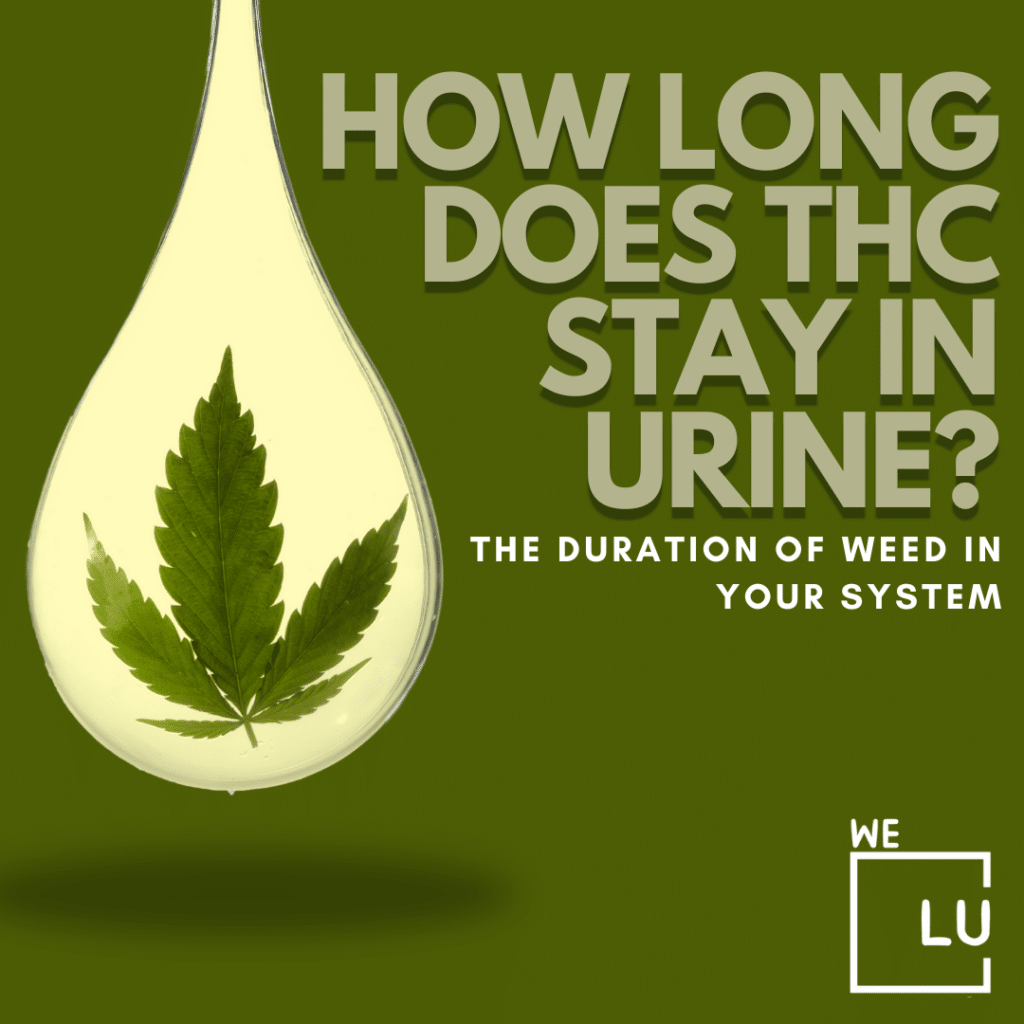
Skip To:
Learn More:
- How Long Does THC Stay in the System? Understanding Detection Times in Urine, Saliva, and Blood Tests
- What Does THC Do to the Brain? Long-Term Effects of Marijuana
- THC Withdrawal, Symptoms, Timeline, and Treatment
- Best THC Detox To Pass Drug Tests. THC Detox Drinks. THC Detox Effective & Fast Methods.
- Dab Weed Health Effects, Addiction, Overdose & Treatment
THC Detection Times In Drug Tests
| Drug Test Type | Detection Window |
|---|---|
| Urine | Up to 3 to 30 days after last use |
| Blood | Up to a few hours to 2 days after use |
| Saliva | Up to 24 to 72 hours after last use |
| Hair | Up to 90 days or longer, depending on hair length |
Consulting with healthcare professionals or the entity conducting the drug test is recommended for more accurate and personalized information. Additionally, the use of CBD products or other cannabinoids can also influence drug test results.

Get Your Life Back
Find Hope & Recovery. Get Safe Comfortable Detox, Addiction Rehab & Dual Diagnosis High-Quality Care.
Hotline (855) 695-1160What Factors Affect How Long THC Stays In Your System?
Several factors can influence how long THC (tetrahydrocannabinol) stays in your system and is detectable in drug tests. These factors contribute to the variability in detection times among individuals:
- Frequency of Use: Regular or chronic cannabis users may have a longer detection window compared to occasional users. THC accumulates in the body over time.
- Dosage: Higher doses of THC result in greater metabolite levels in the body, potentially prolonging the detection period.
- Method of Consumption: The way cannabis is consumed affects how quickly THC enters and exits the bloodstream. Smoking or vaping typically leads to faster onset and shorter duration compared to edibles.
- Metabolism: Individual metabolic rates vary, influencing how quickly the body processes and eliminates THC.
- Body Fat Percentage: THC is lipophilic, binding to fat cells. Individuals with higher body fat may have a longer detection window because THC is released more slowly from fat tissue.
- Hydration Levels: Staying hydrated can help flush THC metabolites from the body, potentially reducing the detection window.
- Genetics: Genetic factors can impact the efficiency of the enzymes responsible for metabolizing THC.
- Overall Health: The state of an individual’s liver and kidney function, which play roles in metabolizing and excreting substances, can influence THC clearance.
- Age: Metabolism tends to slow down with age, potentially extending the detection window for older individuals.
- Type of Drug Test: Different drug tests have varying sensitivities and detection limits. Urine tests are the most common, but blood, saliva, and hair tests also have different detection windows.
- CBD Use: Some CBD products may contain trace amounts of THC. Regular use of such products may contribute to THC accumulation in the body.
Understanding these factors can help individuals and healthcare professionals gauge the potential duration of THC detection. It’s important to note that while these factors influence detection times, individual responses can still vary. Consulting with a healthcare professional or entity conducting the drug test is recommended for accurate and personalized information.
Get Help. Get Better. Get Your Life Back.
Searching for an Accredited Drug and Alcohol Rehab Centers in Near You?
Even if you have failed previously and relapsed, or are in the middle of a difficult crisis, we stand ready to support you. Our trusted behavioral health specialists will not give up on you. When you feel ready or just want someone to speak to about therapy alternatives to change your life call us. Even if we cannot assist you, we will lead you to wherever you can get support. There is no obligation. Call our hotline today.
FREE Addiction Hotline – Call 24/7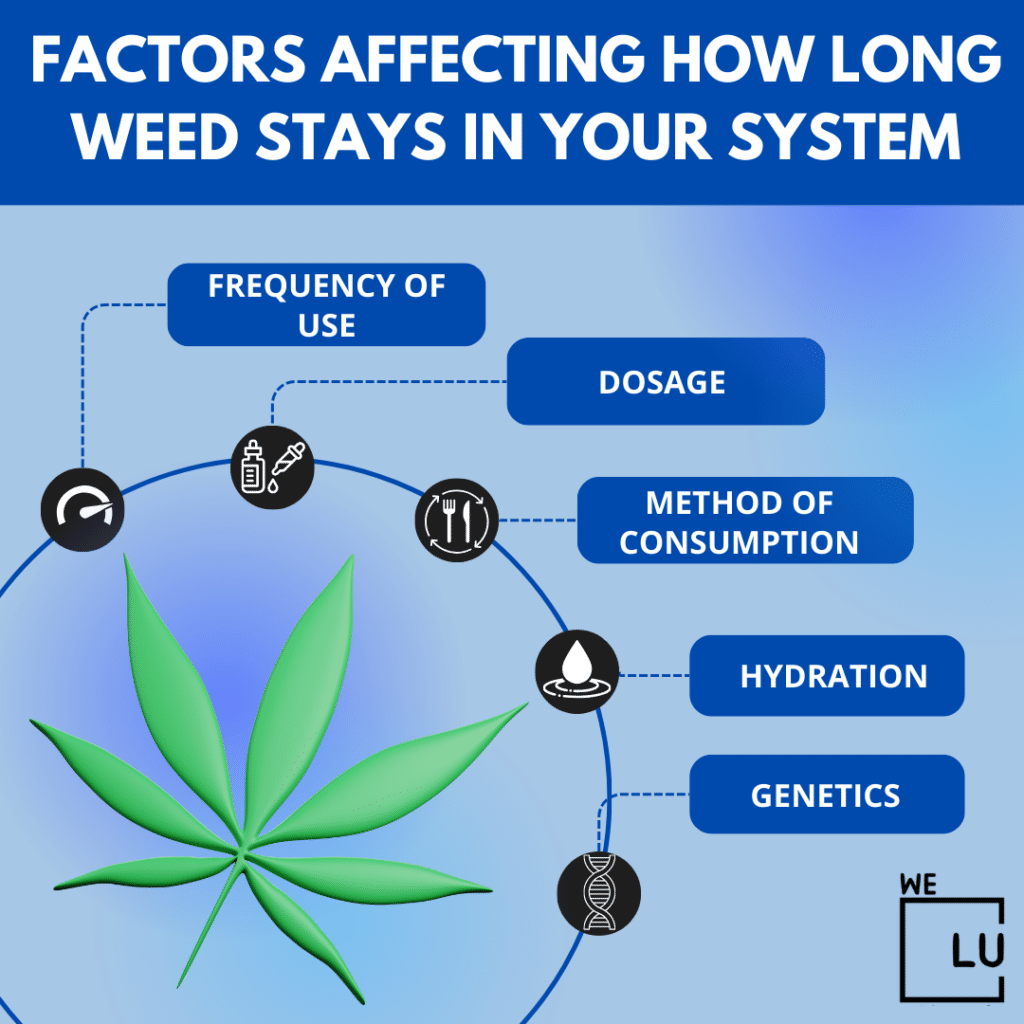
How Does Your Body Metabolize THC?
The metabolism of THC (tetrahydrocannabinol), the psychoactive compound in cannabis, involves several steps in the body. Here is an overview of how THC is metabolized:
- Inhalation or Ingestion: THC enters the body through inhalation (smoking or vaping) or ingestion (edibles). When inhaled, THC rapidly passes from the lungs into the bloodstream. THC is absorbed through the digestive system and processed in the liver when ingested.
- Distribution: Once in the bloodstream, THC is distributed throughout the body, including the brain, where it exerts its psychoactive effects by interacting with cannabinoid receptors.
- First-Pass Metabolism (Oral Ingestion): When THC is ingested orally, it undergoes “first-pass metabolism” in the liver. The liver metabolizes THC into 11-hydroxy-THC, a more potent psychoactive metabolite.
- Metabolism in the Liver: The liver is a crucial site for THC metabolism. THC undergoes enzymatic transformation in the liver, primarily by the cytochrome P450 (CYP450) enzyme system. This process results in the formation of various metabolites, including 11-hydroxy-THC and 11-nor-9-carboxy-THC (THC-COOH).
- Conversion to Water-Soluble Form: The metabolites, including THC-COOH, are converted into water-soluble forms to facilitate elimination from the body.
- Elimination: THC and its metabolites are excreted from the body primarily through urine. Some metabolites may also be eliminated through feces and sweat.
The primary metabolite of THC that is often tested in drug screenings is THC-COOH. This metabolite has a longer elimination half-life than THC itself, contributing to its detectability in drug tests.
The rate of THC metabolism can be influenced by factors such as individual metabolism, frequency of cannabis use, and the presence of other medications that affect the cytochrome P450 enzyme system. While the psychoactive effects of THC are relatively short-lived, THC metabolites can be detectable in the body for an extended period, especially in chronic or frequent cannabis users.
Comfortable Facilities & Amenities
High-Quality Addiction & Mental Health Rehabilitation Treatment
Rehab Centers TourRenowned California Addiction Center. Serene Private Facilities. Inpatient rehab programs vary.
Addiction Helpline (855) 695-1160Proven recovery success experience, backed by a Team w/ History of:
15+
Years of Unified Experience
100s
5-Star Reviews Across Our Centers
10K
Recovery Success Stories Across Our Network
- Low Patient to Therapist Ratio
- Onsite Medical Detox Center
- Comprehensive Dual-Diagnosis Treatment
- Complimentary Family & Alumni Programs
- Coaching, Recovery & Personal Development Events
How Long Do The Effects Of THC Last?
Creating a precise table for the duration of THC effects can be challenging due to the variability in individual responses and the influence of different factors. However, here’s a general overview of the approximate duration of THC effects based on the method of consumption:
| Method of Consumption | Onset of Effects | Duration of Effects |
|---|---|---|
| Smoking/Vaping | Rapid (minutes) | 2-4 hours |
| Edibles | Slow (30 min – 2 hours) | Up to 6 hours or more |
| Tinctures | Variable | 2-4 hours |
| Topicals | Variable | Limited (localized) |
| Sublingual (under the tongue) | Rapid (minutes) | 2-4 hours |
Factors such as the THC content, individual tolerance, and overall health also play a role in determining the duration and intensity of THC effects. Additionally, the use of other cannabinoids and terpenes present in the cannabis strain can contribute to the overall experience. Users should start with a low dose, be mindful of their tolerance, and avoid excessive consumption to prevent adverse effects.
How Long Does It Take For THC To Wear Off?
The time it takes for THC (tetrahydrocannabinol) to wear off varies based on several factors, including the method of consumption, the frequency of use, individual metabolism, and overall health. After smoking or vaping, the psychoactive effects typically peak within the first 30 minutes to an hour and gradually decline over the next few hours. The acute effects can last for approximately 2 to 4 hours but may persist longer in some cases.
For infrequent users, THC metabolites are generally eliminated from the body within a few days to a week. However, for regular or heavy users, THC can be detectable in urine for several weeks. It’s important to note that while the acute effects of THC wear off relatively quickly, traces of THC metabolites can linger in the body, impacting drug test results and contributing to a more extended overall detection period.
World-class, Accredited, 5-Star Reviewed, Effective Addiction & Mental Health Programs. Complete Behavioral Health Inpatient Rehab, Detox plus Co-occuring Disorders Therapy.
CALL (855) 695-1160End the Addiction Pain. End the Emotional Rollercoaster. Get Your Life Back. Start Drug, Alcohol & Dual Diagnosis Mental Health Treatment Now. Get Free No-obligation Guidance by Substance Abuse Specialists Who Understand Addiction & Mental Health Recovery & Know How to Help.
How To Get Marijuana Out Of Your System?
Removing marijuana from your system depends on various factors, including the frequency of use, your metabolism, and the specific type of drug test being conducted. While there is no guaranteed method to quickly eliminate THC (tetrahydrocannabinol), the psychoactive compound in marijuana, from your system, here are some general suggestions that may help:
- Time: THC naturally clears from the body over time. For infrequent users, THC may be detectable in urine for up to a few days, while for regular or heavy users, it can be detected for several weeks.
- Hydration: Drinking plenty of water can help dilute urine and may increase the frequency of urination, potentially expelling some THC metabolites. However, excessive water intake can lead to a diluted sample, which may be flagged in drug tests.
- Exercise: Regular physical activity can help burn fat, where THC metabolites are stored. However, intense exercise just before a drug test may temporarily increase THC levels in the urine.
- Diet: Maintaining a healthy diet and avoiding high-fat foods may help overall metabolism. Some suggest including diuretic foods like celery and cranberries in the diet.
- Sauna or Sweating: While sweating in a sauna or through exercise may help release some THC through sweat, it has a limited impact on the overall elimination of THC from the body.
- Abstaining from Use: The most effective way to ensure a drug test comes back negative is to refrain from using marijuana. Over time, as the body metabolizes THC, it will become undetectable in drug tests.
It’s crucial to note that detox methods vary in effectiveness, and there is no foolproof way to eliminate THC from the body rapidly. Additionally, attempting extreme measures, such as excessive water intake or using commercial detox products, may have health risks and are not recommended.
Consult with healthcare professionals or the entity conducting the test for guidance tailored to your situation.
Is THC Addictive?
THC (tetrahydrocannabinol), the psychoactive compound in marijuana, can be psychologically addictive for some individuals, but it is generally considered less physically addictive compared to substances like nicotine or opioids. Various factors, including individual susceptibility, frequency of use, and the presence of underlying mental health conditions, influence the potential for addiction to THC.
Psychological addiction to THC is characterized by a compulsive desire to use marijuana despite adverse consequences. Some individuals may develop a dependency on the mood-altering effects of THC, leading to a perceived need for its use to cope with stress or other challenges.
However, not everyone who uses marijuana becomes addicted, and many people use it without experiencing significant problems. The risk of addiction is higher for those who use marijuana regularly, especially in high doses or from a young age.

Experience Transformative Recovery at the We Level Up California Treatment Center.
See our authentic success stories. Get inspired. Get the help you deserve.



Start a New Life
Begin with a free call to an addiction & behavioral health treatment advisor. Learn more about our dual-diagnosis programs. The We Level Up treatment center network delivers recovery programs that vary by each treatment facility. Call to learn more.
- Personalized Care
- Caring Accountable Staff
- World-class Amenities
- Licensed & Accredited
- Renowned w/ 100s 5-Star Reviews
We’ll Call You
How to Navigate Life. “I was a Slave to Alcohol & Drug Addiction for 17 Years.” Recovery is Great!
Search How Long Does THC Stay In Urine, Drug & Alcohol Rehab / Detox & Mental Health Topics & Resources
Sources
- Anderson, B. M., et al. (2011). Sex, drugs, and cognition: Effects of marijuana [Abstract].
https://www.tandfonline.com/doi/abs/10.1080/02791072.2010.10400704 - Sharma, P., et al. (2012). Chemistry, metabolism, and toxicology of cannabis: Clinical implications. Related Article: THC detection times in urine chart, how long does thc stay in urine, thc urine test, what is a high thc level in urine,
https://www.ncbi.nlm.nih.gov/pmc/articles/PMC3570572/ - Taylor, M., et al. (2017). Comparison of cannabinoids in hair with self-reported cannabis consumption in heavy, light and non-cannabis users.
https://www.ncbi.nlm.nih.gov/pmc/articles/PMC5396143/ Related Article: THC detection times in urine chart, how long does thc stay in urine, thc urine test, what is a high thc level in urine, - Verstraete, A. G. (2004). Detection times of drugs of abuse in blood, urine, and oral fluid. Related Article: THC detection times in urine chart, how long does thc stay in urine, thc urine test, what is a high thc level in urine,
https://pdfs.semanticscholar.org/157f/ce13e153e873b50b8644e34be07610800ffc.pdf - Alvarez JC, et al. (2021). Population pharmacokinetic model of blood thc and its metabolites in chronic and occasional cannabis users and relationship with on-site oral fluid testing.https://pubmed.ncbi.nlm.nih.gov/33386756/ Related Article: THC detection times in urine chart, how long does thc stay in urine, thc urine test, what is a high thc level in urine,
- Bergamaschi M, et al. (2013). Impact of prolonged cannabinoid excretion in chronic daily cannabis smokers’ blood on per se drugged driving laws. https://www.ncbi.nlm.nih.gov/pmc/articles/PMC3717350/ Related Article: THC detection times in urine chart, how long does thc stay in urine, thc urine test, what is a high thc level in urine,
- Hadland D, et al. (2017). Objective testing – urine and other drug tests. https://www.ncbi.nlm.nih.gov/pmc/articles/PMC4920965/
- Moeller K, et al. (2017). Clinical interpretation of urine drug tests: what clinicians need to know about urine drug screens. https://www.mayoclinicproceedings.org/article/S0025-6196(16)30825-4/fulltext Related Article: THC detection times in urine chart, how long does thc stay in urine, thc urine test, what is a high thc level in urine,
- What are marijuana’s effects? (2020). https://nida.nih.gov/publications/research-reports/marijuana/what-are-marijuana-effects Related Article: THC detection times in urine chart, how long does thc stay in urine, thc urine test, what is a high thc level in urine,
- McNeil SE, Cogburn M. (2022). Drug Testing. In: StatPearls [Internet]. Treasure Island (FL): StatPearls Publishing.
